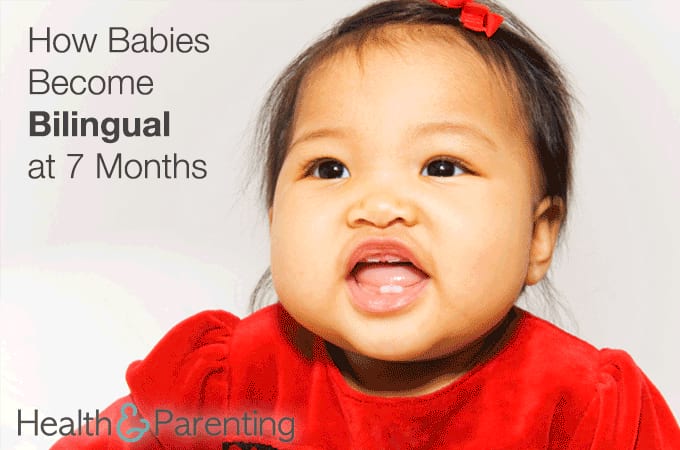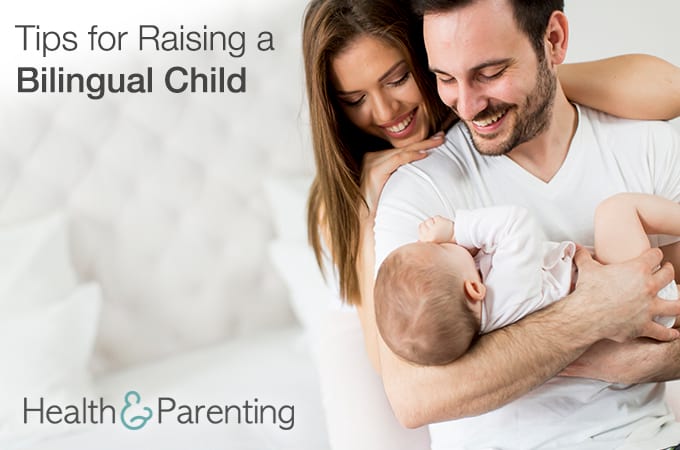It is remarkable that bilingual babies can learn two languages at the same time other babies learn one. On average, bilingual and monolingual babies start talking around age 1 and can say 50 words at 18 months. But, the question is how?
DURATION and PITCH
According to a research from the university of British Columbia and Université Paris Descartes, from the age of seven months babies are able to distinguish two languages with different grammatical structures.
It shows that infants in bilingual environments use duration and pitch cues to distinguish between two languages that have opposite grammatical structures. Even if they do not understand the meaning of the words, they seem to be able to tell the difference between nouns, prepositions, verbs, and articles based on sound qualities.
According to Janet Werker, UBC psychologist and co-author of the study, babies know the differences between two opposing languages and use them as cues to tell one from the other in as early as seven months. Typically, languages have two grammatical structures – verb-object and object-verb. For example, the English phrase “Eat the banana” has the verb before the object. In Japanese, the equivalent phrase is “Ringo o taberu” which directly means “Apple eat”. Notice that the object comes before the verb.
FREQUENCY
Previous researches also showed that babies use frequency of words in speech to know their significance, so essentially they are learning by counting. For example, the words “the” and “with” come up more frequently than other words. However, babies who are growing up bilingual need to develop new methods to cope with two languages.
Italian researchers also wondered why there is no delay and found out that being bilingual makes the brain more flexible. According to their studies, bilingual babies learn two kinds of patterns at the same time. So, if you speak two languages at home, you do not need to be afraid your baby will have delayed speech development, as your baby is well-equipped to keep those languages separate.
These researchers hope to reassure parents that learning two languages at the same does not cause any delay in speech development. In facts, raising a bilingual child has a number of benefits. Learning two languages has been linked to earlier reading, better problem solving, and creative thinking compared to monolingual kids.
Do you speak two languages in your home?
Written by Team Health & Parenting
This information is not intended to replace the advice of a trained medical doctor. Health & Parenting Ltd disclaims any liability for the decisions you make based on this information, which is provided to you on a general information basis only and not as a substitute for personalized medical advice. All contents copyright © Health & Parenting Ltd 2018. All rights reserved.











